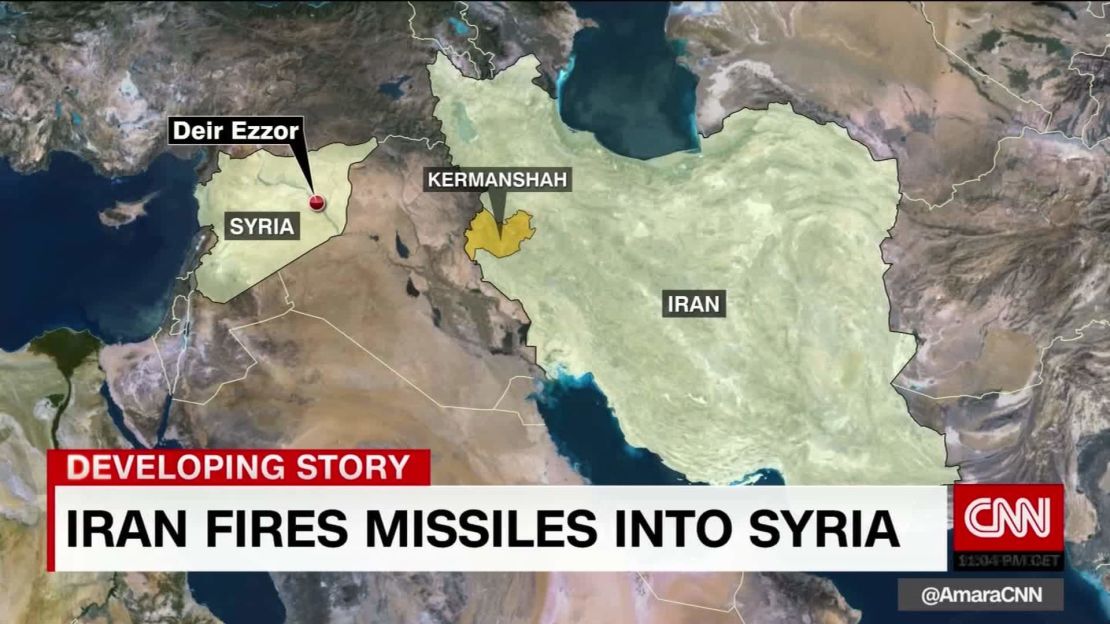Story highlights
Observers say it marks escalation of Iran's role in war in Syria
Islamic Revolutionary Guard Corps said strike targeted militants in eastern Syria
Iran’s military said Sunday that it has launched several missiles into eastern Syria, targeting Islamic State fighters in retaliation for the twin attacks that rocked Tehran on June 7.
The strikes are the first time Iran has fired missiles at another country in three decades and represent a major escalation of Iran’s role in the war in Syria.
Islamic Revolutionary Guard Corps (IRGC) said on its official news website, Sepah News, that several “ground-to-ground, mid-range missiles” were fired from bases in Kermanshah province, western Iran.
The operation “targeted Takfiri forces in the Deir Ezzor region in Eastern Syria.”
Iran’s Revolutionary Guard uses the term Takfiri to describe ISIS.
Six assailants killed at least 16 people at Iran’s Parliament building and a shrine dedicated to the republic’s revolutionary founder Ayatollah Khomeini. The attacks marked the the first time that ISIS, a Sunni Muslim group fighting Iranian-backed militias in Syria, has claimed responsibility for an attack in Iran.
Iran backs Syrian President Bashar al-Assad in his fight against anti-government rebel groups and ISIS, which is primarily based in the Syrian city of Raqqa.

Lt Col (ret) Rick Francona, CNN military analyst, described Iran’s move as a “real escalation.”
“The selection of targets is interesting. They say they are firing at the same people who planned the attacks in Tehran but it also bolsters the Syrian army effort right now.”
Amir Daftari, a CNN producer in Tehran, said that Iran hadn’t hidden its support for Assad “but up until now they’ve led us to believe that they’ve provided things like military advisers, volunteers and money.”
The IRGC had vowed revenge for the Tehran attacks and accused Saudi Arabia of supporting ISIS in the operation.
Shiite-majority Iran and Sunni-majority Saudi Arabia have long been embroiled in a sectarian feud.
The rivals are on opposite sides of violent conflicts in Syria, Yemen and most recently Iran has come to the support of Qatar after Gulf countries placed a diplomatic blockade on the country, accusing it of supporting terrorism.
CNN’s Nadeem Muaddi, Shirzad Bozorgmehr and Angela Dewan contributed to this report.

















